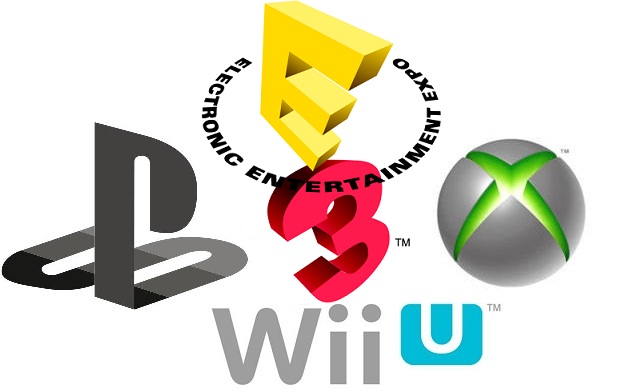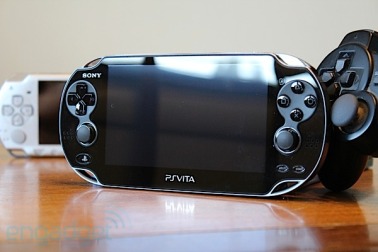So, now we’ve got the good things from E3 2012 out of the way, it’s time to talk about those moments that were bad, and just downright ugly.
And there were certainly a few worth talking about. First off,
The Bad
Sony’s press conference had a conspicuous lack of Vita chat, even with the announcemnet of an Assassin’s Creed 3 spin off and new Black Ops title coming to the system. In fact, besides a few games shown on the floor — mostly by other publishers — it almost came off as a silent acceptance of the Vita’s poor performance in worldwide sales, even a quiet confirmation the company will support the handheld, but only as far as its current legs can carry itself. It was disappointing, but in some respects not very surprising and certainly not something you can blame Sony for all that much at this point (besides the high price, lack of support, strange marketing decisions, etc.)
Then there was Nintendo. Oh Nintendo… it was their E3 to lose — with high expectations for a new console, Nintendo bungled their conference with an underwhelming and flaccid display, devoid of any surprising and absolutely no guarantees on what to expect post-launch window. Hell, no guarantees on when to expect the console launch itself, nor any price. Sure, it was confirmed there would be no price or release date, but I thought for sure we’d get an idea, maybe even a general time of when to expect the announcement of the release date even… But no, nothing.
On top of that, the games shown during the press conference were either unsurprising (Pikmin 3, Super Mario Bros U) or just down right boring (Nintendoland). Thankfully, Ubisoft was there the provide a glimmer of hope with their new ZombiU franchise. But instead of showing off the game and the cool features it is implementing, Nintendo instead opted to spend 10 minutes showing off Batman: Arkham City — a game that will be over a year old by the time the Wii U Launches. Coupled with Darksiders 2, Mass Effect 3, and confirmation that Alien: Colonial Marines will ship on the Wii U after the PC, 360 and PS3 versions, you had a rather sad and sorry display for third party Wii U support. The show closed with fireworks, and no big announcements. The future of the system was left entirely untouched: what’s Retro bringing? What kind of third party support can we expect? What studios are working on future software for the system we can expect months or years after the Wii U launches? These questions remain unanswered.

Even worse, the separate 3DS press conference they held the day after showed off essentially the exact same products teased at the Wii U conference the day before, and the more impressive Wii U and 3DS announcements weren’t even made until AFTER the press conferences. It was a mes, and an altogether disappointing E3 for Nintendo.
The Ugly
This year was hard for me. Even though I can point to at least a dozen games I was impressed by and am excited to see in the next near (or more), it seemed like every game was toting a “3” suffix — Assassin’s Creed 3, Dead Space 3, Far Cry 3, Crysis 3, Pikmin 3 (all of which ended up impressing me this year). We also saw the fourth entry in the Gears of War franchise, Halo 4 (technically a “reboot” of sorts, but still the sixth entry in the series), ANOTHER Assassin’s Creed (the eighth or ninth in the series), and a new God of War (the fourth home console title, and sixth overall game in the franchise). Plus the next Call of Duty and Medal of Honor games as well.
It was fatiguing. And, to be honest, in a lot of ways I almost felt ashamed for getting excited about some of these games. Do we really need another God of War, Halo, Assassin’s Creed, and Call of Duty? I know these look great, and will be highly successful, but ever since this generation sparked the trend of yearly franchises, I find myself getting more and more cynical and worn out on these characters and scenarios. They’ll be great games, absolutely. But I would really like to see this generation wind down and make way for new ideas.
And it’s not just because I’d like to see new IP.
These yearly franchises have brought in a new type of gamer. Something like the “hardcore casual gamer”, aka, bro-shooter fans. They usually just buy 1-2 games a year (almost undoubtedly Call of Duty and Madden) and not much else. There’s millions of these guys — chances are you know one. By no means are they bad for games sales, but marketers and PR departments seem to think they’re the audience they need to be selling their games to, and E3 was proof of that. The biggest example is Dead Space 3. Behind closed doors, convention-goers were shown tense, suspenseful moments, broken up by tussles with gore-hungry necromorphs. It looked and played like Dead Space, albeit with some changes, and a few steps further down the path of action sequences started by Dead Space 2.
But by no means was it it a third person shooter.
But if all you had seen or heard on the new game was the 30 second trailer at EA’s press conference. you’d probably have thought they were showing off Gears of War, complete with duck-and-cover shooting, meat-headed co-op partners spouting off testosterone fuled “Shits” and “Fuck Yeah’s” and balsting gun-toting space marines — the opposite of why people play Dead Space. Thankfully, we were assured the single player is devoid of AI companions (for the large majority at least), the cover stuff is not the main focus, and the humans actually mutate and morph in The Thing-like fashion once you’ve damaged them.

I could go on and on, the point it, games seem to be marketed towards a certain type of gamer these days, and that bad for two reasons. 1) when those bro-shooter fan pick up the game and realize it’s not Gears of War or Call of Duty, they’ll be frustrated, confused and disappointed. And 2) when core-fans of series like Dead Space and Mass Effect see their games marketed as CoD or GoW, they become frustrated, confused and disappointed. No one wins.
It’s part of a larger problem with the videogame industry as a whole, and highlights the issue of how to market games to the right people. Games (and the gamers who play them) are becoming just as diverse as movies, television, and music. Not every movie-goer sees all the big movies, and no core-gamer plays all the big games. I think it’s probably a time for more niche marketing and press in the industry itself.
But like I’ve said, I could go on and on. The the industry is changing, and despite how great the majority of games were, this year’s E3 is proof of that. If nothing else, the biggest thing I came away with from E3 2012 was my excitement for E3 2013, and its potential to bring us new experiences and innovations.








